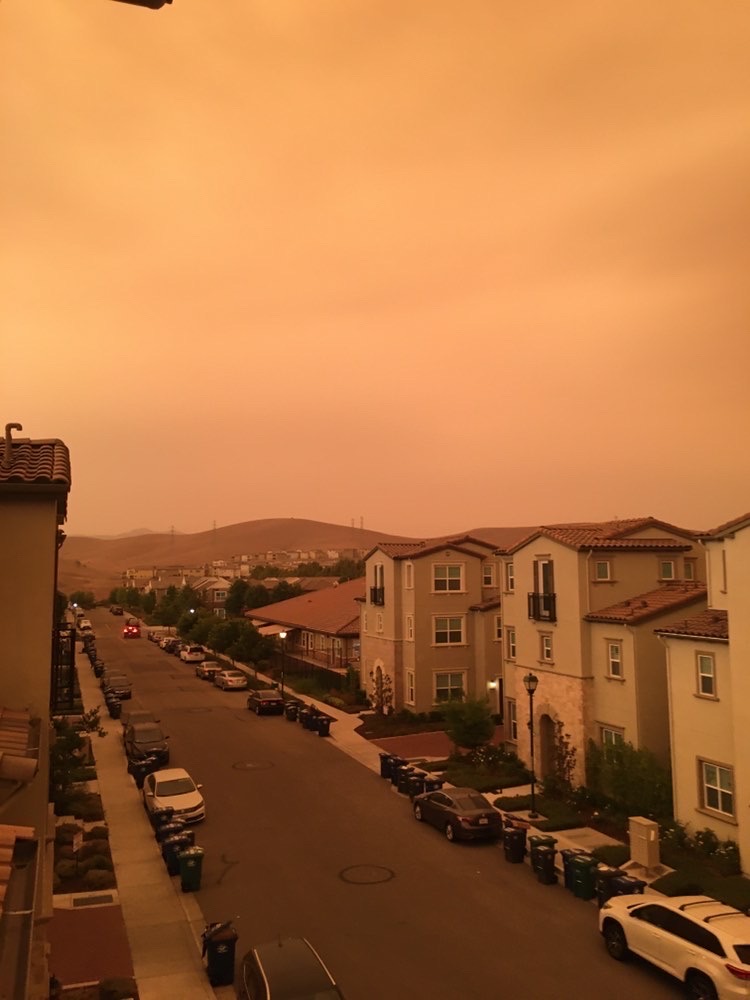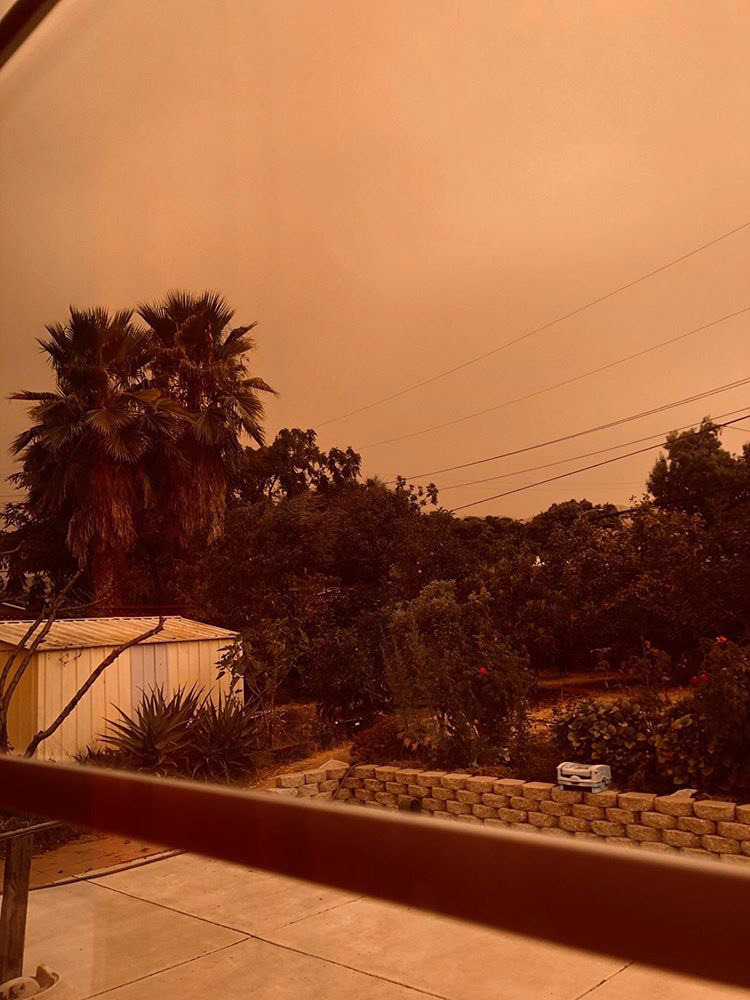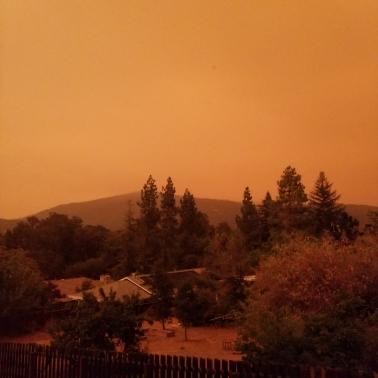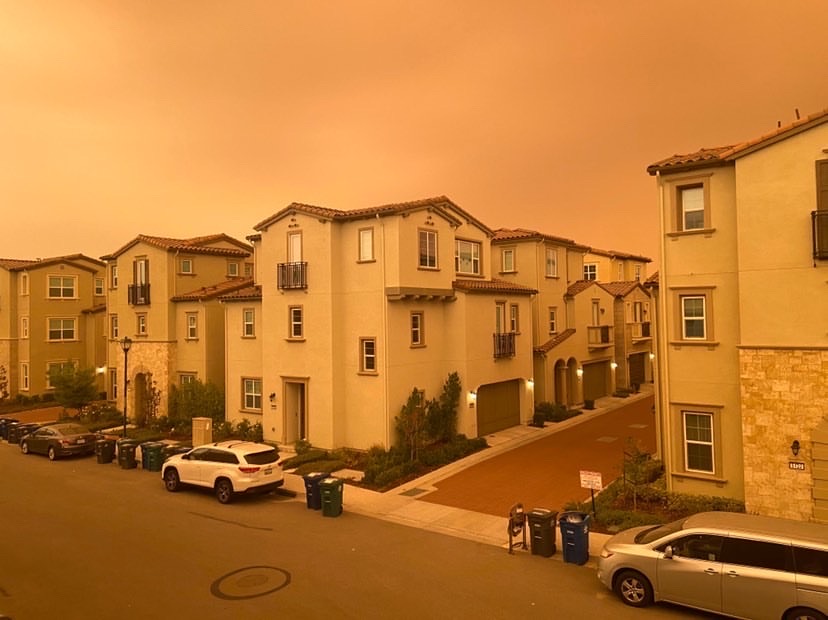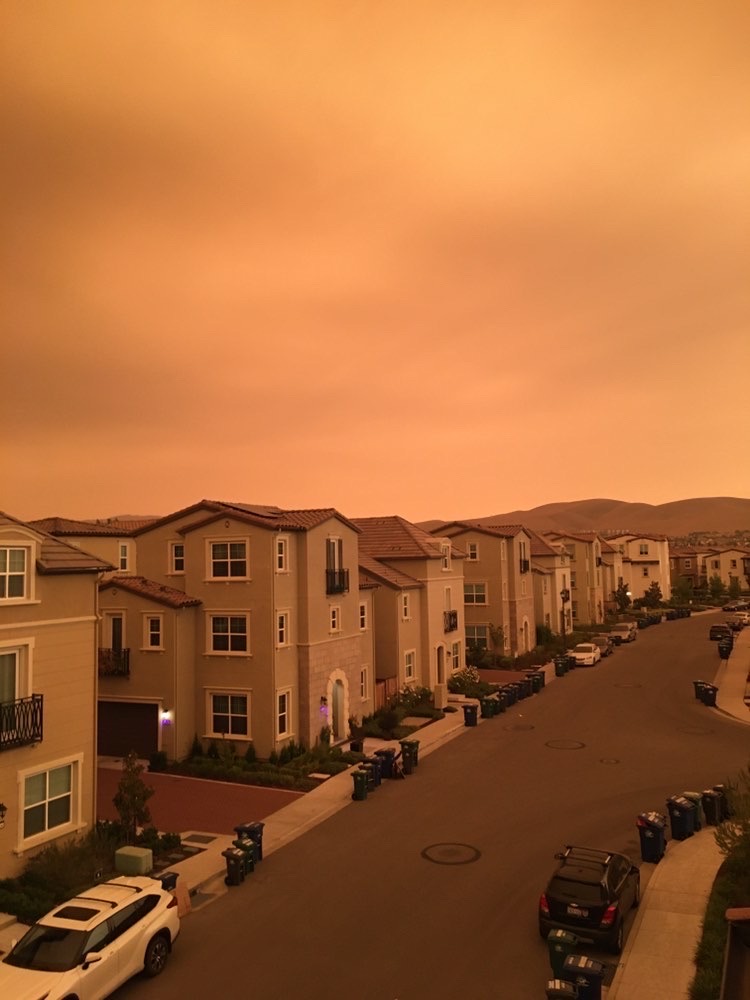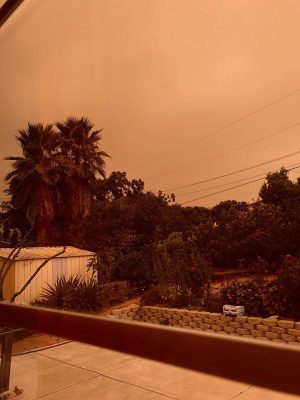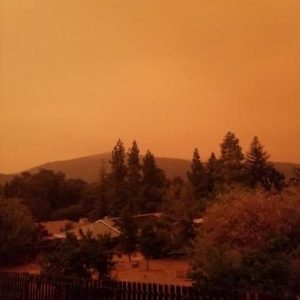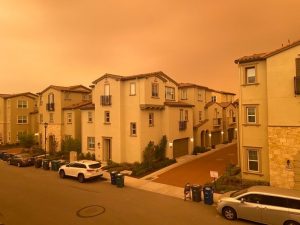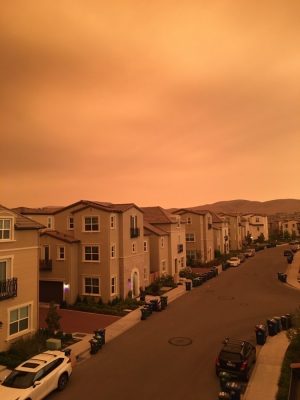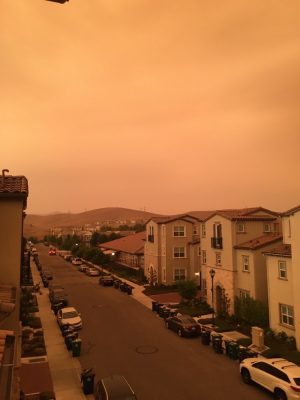West Coast States Engulfed by Wildfires
September 17, 2020
Wildfires are spreading rapidly across California, Washington, and Oregon. In the past week, West coast residents have woken up each day to an orange sky, caused by the fire complex ravaging the state. Aastha Lele, a freshman at UC Davis and a resident of Los Altos, California, woke up on a Wednesday morning to find a yellow-colored sky.
“I did not want to go outside because it looked terrible,” Ms. Lele said. “The smoke that day was so bad. I kept my window open and the sill accumulated ash. The sad orange sky is startling and ruins my mood for the remainder of the day, every day. It is scary to be witnessing the effects of climate change just outside my house.”
The orange skies around San Francisco are a result of the ash and smoke from the fires. Due to strong winds, the smoke particles scatter blue light from the sun while allowing the orange-red light to reach the surface. If the smoke is thick enough, the sun’s light will be scattered and absorbed before reaching the ground. This blockade is what causes the dark skies during the day.
“The size and density of smoke and ash particles will block certain color wavelengths emanating from the sun,” Forest Agent Daniel Leavell of Oregon State University said. “Blue, yellow, and green are shorter wavelengths and blocked more readily while red and orange are longer wavelengths that can get through the blockage becoming more visible to the eye.”
In the Western fires and smoke, heatwaves block the clouds and make it harder for sunlight to pass through. As a result, the smoke and ash remain in the air for multiple days. Arushi Malik ‘21, a competitive tennis player from Cupertino, California, was devastated that her tournament got canceled as a result of the fire.
“It is so gloomy outside ─ I have to keep my lamp on because the house stays a similar shade of dark from the morning through the night,” Malik said. “When I was doing up and down planks in my backyard for tennis practice, I did not realize that my forearms were fully covered in ash.”
As the fires have grown in California, air quality has deteriorated. While a normal rating on the Air Quality Index (AQI) is 50, many counties in the region have a rating of over 150. San Francisco has an AQI of 193, which poses a distinct health risk. The biggest risk is posed by fine particles, under 2.5 microns, within the mixture of particles and gases of wildfire smoke.
“I feel overwhelmed because every time I attempt to go outside my house, the smoke clogs up my nose and I find it difficult to breathe,” said Priya Inampudi ‘21. “Experiencing the fires last year, and seeing them happening all around the world such as Australia, and now here again, it seems like a normal recurrence.”
Millions of Californians are not able to go out because the smoke is highly dangerous at current levels. Health officials are recommending that people stay in closed-off spaces such as homes and other buildings to protect themselves from the pollution. If people do go out, it’s asked that they avoid strenuous activity and wear some kind of face mask.
“While larger particles are easy to notice, think eye and throat irritation, it is the fine particulates that are most dangerous as they can reach deep into the lungs to cause systemic inflammation and even cross into the bloodstream,” Dr. Perry Hystad, an environmental epidemiologist from Oregon State University, said. “Exposure to wildfire smoke can cause serious health impacts, especially for those most susceptible, [including the] elderly, pregnant women, [and] individuals with pre-existing cardiovascular or respiratory diseases.”
The fires have become a daily reality for the people in the West and many pray for rain. Livelihoods and homes have been destroyed; fire departments are putting in as much effort as they can to lessen the spread of the fires and salvage the burned land. Donating to the Red Cross relief and recovery fund, Direct Relief, GoFundMe, and Salvation Army are just some of the many ways to help out.

